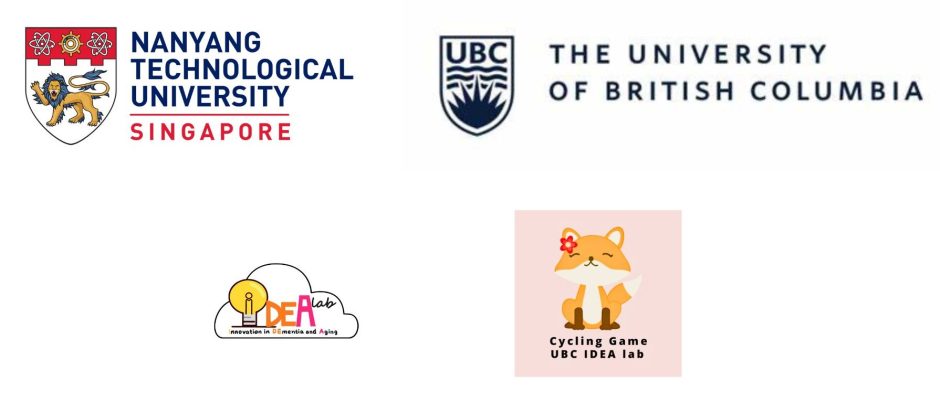
Cycling Game: Exploring the Acceptability and Use of Gamified Rehabilitation Exercise for Older Adults in Long-Term Care
Gamified Rehabilitation exercises contribute to supporting older adults who experience functional and cognitive impairments in Long Term Care (LTC) homes through a more motivating and entertaining way.
The gamified rehabilitation exercise utilized in this study is designed and developed by the Joint NTU-UBC Research Centre of Excellence in Active Living for the Elderly (LILY). Well-designed cycling modules enhance the current Active Passive Trainer (APT) rehabilitation equipment by incorporating motion sensors on the pedals.
Exergaming content is projected onto a TV in front of participants while pedalling. Users are represented by a virtual avatar (a fox) engaged in a hunting game, where the avatar’s movements correspond to pedal speed, aided by vocal cues. Data will be collected from interviews and scale assessments.

What Will the Study Consist Of?
In this mixed exploratory study, we are targeting a diverse group of individuals from one LTC home in Vancouver, British Columbia. This group will consist of a sample of (a) 12-20 older adult residents living in LTC homes who took traditional rehabilitation exercise as a routine; (b) 12-20 family members of residents; (c) 20 part-time or full-time staff members working, such as nurses, care aides, and allied health staff; and (d) 5 leadership team members, such as recreation and facility managers.
Residents and their family members will be invited to join gamified rehabilitation exercises lasting 5–10 minutes, twice a week in three weeks, instead of their incumbent rehabilitation exercise without gamification. We will explore how older adults experience gamified rehabilitation exercises.
Staff will be invited to participate in focus groups before and after the intervention. Leadership team members will be invited to a separate focus group after the intervention. In both cases, staff and leadership team members will be asked about their perceptions of gamified rehabilitation exercises on the residents and the LTC home more broadly.
Research Design
Phase 1: Training frontline staff to integrate gamification seamlessly into existing rehabilitation exercises, completing an ethics applications, and recruiting team members.
Phase 2: Implementation of gamified rehabilitation exercises among recruited participants, leveraging the expertise of the Joint NTU-UBC Research Center of Excellence in Active Living for the Elderly (LILY), creating engaging and entertaining gamified exercises.
Phase 3: Assessing the feasibility of gamified rehabilitation exercises for residents in long-term care as a qualitative study through interviews and focus group discussions to gather insights and feedback.
The Team
Principal Investigator: Dr. Lillian Hung
Project Manager: Yong (Peter) Zhao. Please contact Yong (Peter) Zhao at drzhao78@mail.ubc.ca if you have any questions/interest.
Team Members: Lily (Haopu) Ren; Jamie Lam